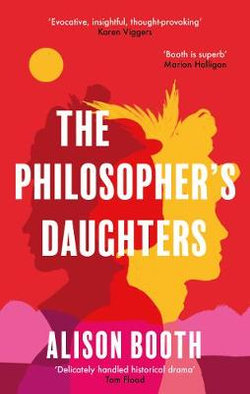A tale of two very different sisters whose 1890s voyage from London into remote outback Australia becomes a journey of self-discovery, set against a landscape of wild beauty and savage dispossession.
London in 1891: Harriet Cameron is a talented young artist whose mother died when she was barely five. She and her beloved sister Sarah were brought up by their father, radical thinker James Cameron. After adventurer Henry Vincent arrives on the scene, the sisters' lives are changed forever.
Sarah, the beauty of the family, marries Henry and embarks on a voyage to Australia. Harriet, intensely missing Sarah, must decide whether to help her father with his life's work or to devote herself to painting. When James Cameron dies unexpectedly, Harriet is overwhelmed by grief. Seeking distraction, she follows Sarah to Australia, and afterwards into the outback, where she is alienated by the casual violence and great injustices of outback life.
Her rejuvenation begins with her friendship with an Aboriginal stockman and her growing love for the landscape. But this fragile happiness is soon threatened by murders at a nearby cattle station and by a menacing station hand who is seeking revenge.
"A lyrical tale of wild, frontier Australia. Evocative, insightful, thought-provoking"
Karen Viggers
"Two young women in outback Australia in the 1890s, where the brilliant sunlight may illuminate more than the landscape. Booth is superb at the small detail that creates a life, and the large one that gives it meaning"
Marion Halligan
"A delicately handled historical drama with the theme of finding self, both in relationships and art"
Tom Flood
This title is in stock with our overseas supplier and should be sent from our Sydney warehouse within 3 - 4 weeks of you placing an order.
Once received into our warehouse we will despatch it to you with a Shipping Notification which includes online tracking.
Please check the estimated delivery times below for your region, for after your order is despatched from our warehouse:
ACT Metro 2 working days
NSW Metro 2 working days
NSW Rural 2-3 working days
NSW Remote 2-5 working days
NT Metro 3-6 working days
NT Remote 4-10 working days
QLD Metro 2-4 working days
QLD Rural 2-5 working days
QLD Remote 2-7 working days
SA Metro 2-5 working days
SA Rural 3-6 working days
SA Remote 3-7 working days
TAS Metro 3-6 working days
TAS Rural 3-6 working days
VIC Metro 2-3 working days
VIC Rural 2-4 working days
VIC Remote 2-5 working days
WA Metro 3-6 working days
WA Rural 4-8 working days
WA Remote 4-12 working days



Share This Book: